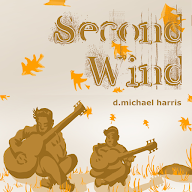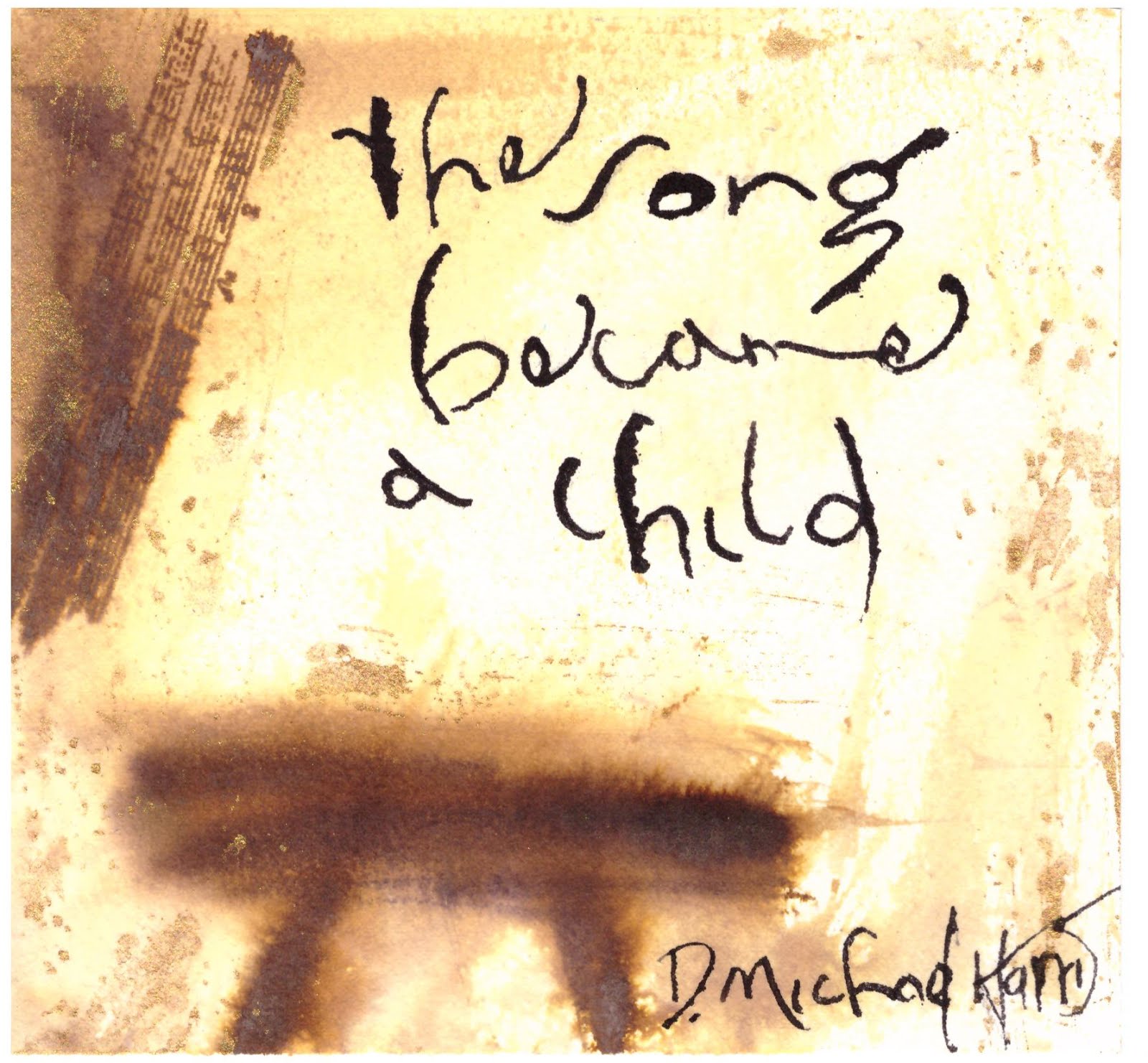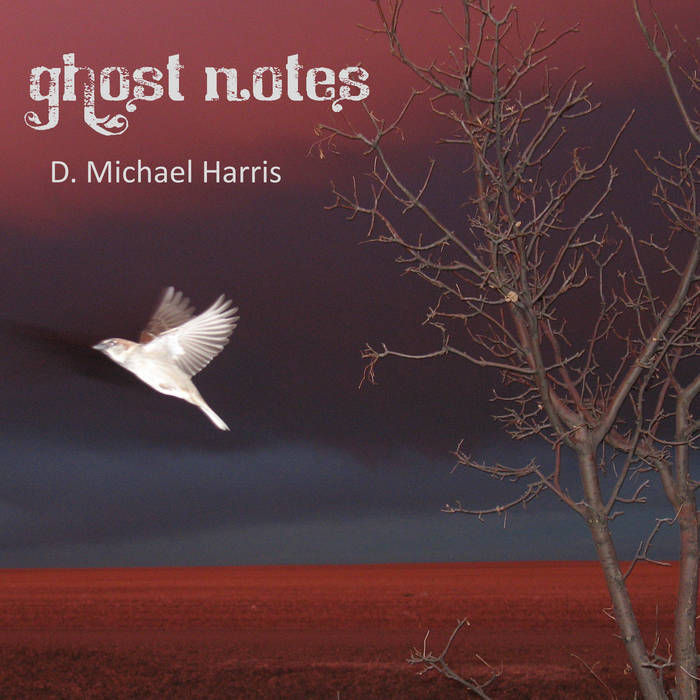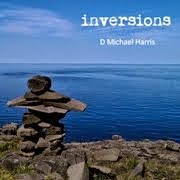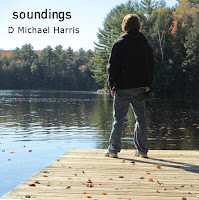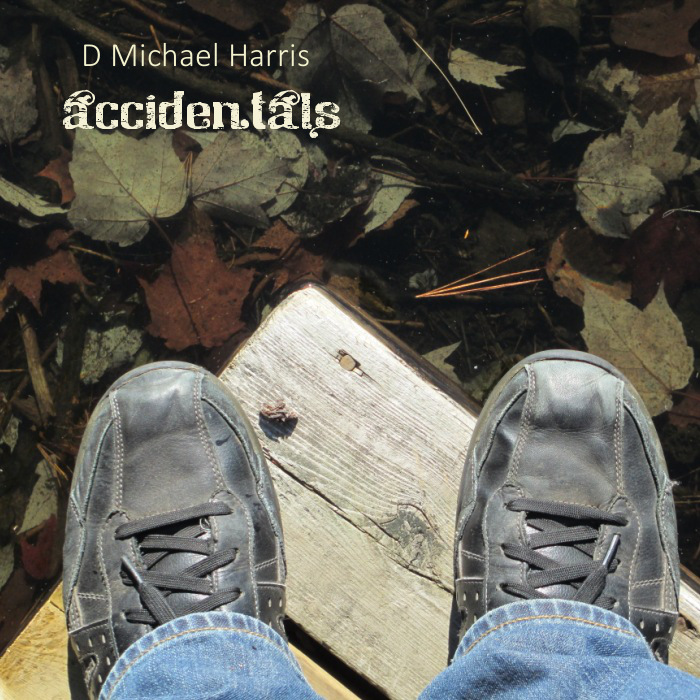Another song from inversions. It was inspired by a pastor I heard about who was "tweeting" his way through the whole Bible-- providing short, 140 character summaries of each book as he finished them. His "tweet" summarizing the book of Psalms?
When my heart broke in two, I taught both halves to sing.
They say the bones always heal
Stronger at the break
It’s what they say, what they say
Some joys come stealing in
Through the backdoor of the ache
Then they steal away, they steal away
But somewhere at the bottom of a deep dark well
I thought I saw your face
And somehow when the silence got the best of me
That’s when I found you
When my heart broke in two, you taught both halves to sing
When I couldn’t mouth the words,
and I could hold the tune together in these clumsy hands
But you showed me the beauty that shines in broken things
In the rhythm of the hurt and laughter, I heard the cadence
When my heart broke in two, you taught both halves to sing
After the tree’s been pruned
You get the sweetest yield
You have to cut it away, cut it away
Only the deepest wound
Can teach us how to heal
There’s no other way, no other way
But somewhere in the middle of an emptied hell
I was tidying up the place
And I hoped you wouldn’t notice all the messiness
But that’s when you found me
When my heart broke in two, you taught both halves to sing
When I couldn’t mouth the words,
and I could hold the tune together in these clumsy hands
But you showed me the beauty that shines in broken things
In the rhythm of the hurt and laughter, I heard the cadence
When my heart broke in two, you taught both halves to sing
The Wounded Healer, a song
Labels: lament, music, songwriting
On Chasing and Waiting and Which is Which, a Devotional Thought
There's this subtle but fascinating linguistic parallel between Hosea 6:3, in the Old Testament, and James 5:7 in the New. In Hosea, the prophet exhorts his people to "acknowledge the Lord and press on to know him, because he will come to us like the winter rains and the spring rains." This line finds a haunting echo in the James passage, where James says, "Be patient and wait for the Lord's coming; Just like a farmer plants his crops and then waits for the autumn rain and the spring rain, so too we should wait, for the Lord is coming."
This verbal parallel gets even more interesting when you look up the ancient Greek translation of the Hebrew Scriptures. In the LXX version of Hosea 6:3, the Greek words for "winter and spring rains" are the exact same words as James uses in 5:7 (proimos kai opsimos). What's fascinating about this, though, is that James is talking about patiently waiting for the Lord, and Hosea's talking about earnestly, actively pursuing him. Yet in both cases the outcome is exactly the same: he comes to us like the spring rain and the winter rain.
This is more than just a curious piece of Bible Trivia. It actually speaks to one of the deep paradoxes of the spiritual life: sometimes the best way to wait for the Lord is to chase hard after him with all we've got, and sometimes the best way to chase after the Lord is to wait patiently for him to come to us.
The obvious question all this raises is: "Which is which, today?" In other words: does my "waiting for the Lord" need to look more like Hosea's earnest pursuit of him? Or does my "pursuit of God" need to look more like James' patient farmer watching the clouds pile up in the sky and waiting for them to arrive? Knowing which we are called to be in this given moment-- a Jamesesque Hosea or a Hosean James--takes careful discernment and deep wisdom; but both James and Hosea would agree, I think, that He comes most surely to those who have learned to wait with perfect restfulness as they pursue him with earnest longing.
Labels: devotionals, hosea
But the Crying, a song
Another song from inversions:
It’s one AM and wide awake
The night is wearing thin
Like the tattered sleeve of a homeless coat
You can play the game of give and take
But you can’t bluff anymore
When your hope is barely keeping you afloat
It’s all over but the crying isn’t over
It’s all over but the crying isn’t done
It’s all over but the crying isn’t over
It’s all over but there’s crying left to come
Now it’s four AM and the world’s asleep
You’re the only one awake
And your heart is pacing in its cage
But if love’s as wide as it is deep
Then you’d better pace yourself
Cause tonight might last forever and an age
It’s all over but the crying isn’t over
It’s all over but the crying isn’t done
It’s all over but the crying isn’t over
It’s all over but there’s crying left to come
And I will cry holy
Shout my broken hallelujahs
I will cry holy
Giving my heart cry to ya
It’s six AM and dawn is near
You’re vigil’s almost done
And the light is standing in the wings
The red-eye flight’s still in the air
But the plane is landing soon
You can hear the day as it begins to sing
It’s all over but the crying isn’t over
It’s all over but the crying isn’t done
It’s all over but the crying isn’t over
It’s all over but there’s crying left to come
And I will cry holy
Shout my broken hallelujahs
I will cry holy
Giving my heart cry to ya
Labels: songwriting
Ba'al No Longer, a devotional thought
Labels: devotionals, hosea, OT, worship
Notes from the Ashes, Part VI: A Gift Wrapped in Barbed Wire
It was a dreary morning in December, only a few days after my doctor had put me on "reduced duties" because of symptoms related to work-place stress, and I was walking my then ten-year-old daughter to her bus stop. I was miserable, with this weight of discouragement and defeat and despair hanging around my heart like a leaden albatross. To paraphrase Augustine only a little bit: my soul was curved hopelessly in on itself.
As we walked, my daughter was saying something I was barely hearing about the song-writer's club at school. As I gradually came to and it sort of dawned on me that she was talking to me, I heard her say something about how she was looking forward to the day because the song-writer's club was happening at lunch. I asked a few questions and found out that her school had this group of kids that got together each week and, with the help of the teacher sponsors, learned how to write songs.
I write songs-- or I used to--but at that point, in the gloomy days right before Christmas 2013, it had been at least two years, maybe more, since I'd put pen to paper. I never felt like I had the time. Or the energy. Or the inspiration. And anyways, what's the point?
One of the first things depression steals from you, I've since learned, is your ability to find joy in things that were, once-upon-a-time, joyful. I've come to take this as a bit of a heart-barometer for me: when things that should be giving me joy feel like drudgery, it's time to take stock and/or a breather. But this is now, and that was then, and like I say, my daughter mentioned the songwriters club at school and I thought, "Man, it feels like ages since I've even wanted to write a song, let alone had something to write about."
And so I told my daughter that I'd be interested in volunteering at the club, if the teachers would let me. She said she'd ask at school that day.
Things progressed for me pretty quickly from there, as far as my burnout was concerned. My "reduced work duties" turned into a full-on stress leave. A lot of things came crashing down that I'd been clinging to, to keep me standing; some of my favorite masks to wear came off; and some of the emotional immaturity that I'd been trying hard to hide for a long time finally came out into the light.
But also: I started volunteering at the songwriter's club, where I found the energy, the time, and especially the inspiration to start writing songs again. Not to sound too melodramatic, but in the midst of my defeat and despair--often because of my defeat and despair--I found something to sing about, and more importantly, the words to sing about it.
I didn't see it coming, but those three months, January to March, 2014, would turn out to be one of the most creative seasons of my life. It was not a bright cheery kind of creativity, mind you. It was often a raw, unpolished, haunted kind of creativity, but because of that, a more honest creativity than I'd ever really experienced before. The songs didn't necessarily gush out of me--I was still very tired a lot of the time--but even so, I wrote at least twelve complete songs in three months, along with a number of arrangements that I worked on for the kids at my daughter's songwriter's club. Besides that, I also wrote a handful of poems, trying to process what I was going through, and, in the second half of my leave, as I felt my energy and optimism returning, four chapters of a novel that I'd been wanting to get to for years.
I'm sharing all this to illustrate one of the paradoxical truths I discovered about burnout. I haven't done an quantitative study of it, of course, so I can't say if this is true for everyone who goes through it, but it was certainly true for me (and for the record, most of the books on pastoral burnout that I've read more or less bear out this simple observation): burnout doesn't only steal; it also gives.
At least, if you take it seriously and get the help you need, it can. Burnout can be a profound gift-- a gift wrapped in barbed-wire, you might say, but a gift nonetheless.
I say this as someone who's been through it, and not at all to make light of the struggle, the darkness, the very real risk to your well-being that is burnout; but as someone who has been through it, I don't want to make light of the gift that's there, either.
What, in particular, did burnout give me? I mentioned the renewed and deepened wells of creativity. I'd add to that: greater authenticity and transparency in my ministry; better insight as a pastor into the spiritual and emotional struggles of others; greater wisdom in how to love and help and respond to people as they go through them; more real friendships; a deeper relationship with my wife; empirical evidence that God will be there still, on the other side of the dark night of the soul.
It may be that burnout is just a conceptual thing for you today, something you've only read about but never experienced. It may be that you've come through burnout yourself, and what I'm saying is resonating with you here. And, of course, it may be that you're right in the middle of something overwhelming today, like I was back in December 2013, and you're wondering if it could possibly get better.
If you're in that third place, let me say that it can. It will mean taking it very seriously and getting the help you need, it will take honesty and discipline and, especially, God stepping in, but it can become, not just better, but, when you least expected it to be so, an unlikely and beautiful gift.
Labels: burn-out, depression, from the ashes, ministry, work
A Requiem for Septimus Warren Smith, a song
Another song from my inversions project. I won't say much about it, except to explain that Septimus Warren Smith is a character from Virginia Woolf's novel Mrs. Dalloway. He is a veteran of World War I suffering from PTSD before anyone really knew what PTSD was. I wrote it a couple of January's ago, when a number of very heartbreaking stories about Canadian soldiers suffering with PTSD were prominent headlines.
When Septimus Warren Smith fell down
I thought I heard the clatter
Of his body on the ground,
When he fell down
When Septimus Warren Smith fell down
I thought I saw them scatter
All the sparrows all around,
When he fell down
Don’t cry, Lucreiza
Don’t cry for me
Don’t cry, Lucreiza
Don’t cry, don’t cry, don’t cry for me
If Septimus Warren Smith be mad
Then all sane men are fools
And crazy’s not so bad,
If he be mad
And when Septimus Warren Smith wept tears
They gathered into pools
Of truth and hope and fears,
When he wept tears
Don’t cry, Lucreiza
Don’t cry for me
Don’t cry, Lucreiza
Don’t cry, don’t cry, don’t cry for me
When Septimus Warren Smith fell down
I thought I heard the clatter
Of his body on the ground
When he fell down
Labels: music, songwriting
Commentaries on Song of Solomon, a review
Over the last few weeks at the FreeWay we’ve been doing a
verse-by-verse study through, of all books, the Song of Solomon. I say, “of all books” like that, because, if
you know this one, you’ll know that it’s not the most accessible book in the
Canon. And if you don’t know it, well,
you may want to give it a read. Because
of its provocative and sensual content, apparently, the ancient Rabbis said
that you had to be at least 30 years old to read it. Although they also said it was the Holy of Holies of the Hebrew Bible. This series was more demanding for me as a preacher
than I expected. It took a lot of research, a good deal of planning
and a whole bunch of prayer.
As I often do after a series, I’m posting here some
reviews of the main commentaries and preaching resources I used in my sermon
prep for this one, in case you want to go deeper.
 Duane Garrett, Song
of Songs/Lamentations, Word Biblical Commentary Series. Duane
Garrett’s commentary was hands down the most insightful, useful and thorough
resource I’ve come across for studying this difficult but beautiful book. He unpacks the imagery with great clarity and
sensitivity, and lays out the overarching structure of the book with great
skill. It is a bit on the technical side—not
an entry-level book, to be sure—and a bit of a working knowledge of Hebrew is
necessary to get all you can out of this resource, but even without it, I
think, there’s lots here that would be accessible to the lay reader. If I only had one book on Song of Solomon on
my shelf, it would be this one.
Duane Garrett, Song
of Songs/Lamentations, Word Biblical Commentary Series. Duane
Garrett’s commentary was hands down the most insightful, useful and thorough
resource I’ve come across for studying this difficult but beautiful book. He unpacks the imagery with great clarity and
sensitivity, and lays out the overarching structure of the book with great
skill. It is a bit on the technical side—not
an entry-level book, to be sure—and a bit of a working knowledge of Hebrew is
necessary to get all you can out of this resource, but even without it, I
think, there’s lots here that would be accessible to the lay reader. If I only had one book on Song of Solomon on
my shelf, it would be this one. Richard S. Hess, Song
of Songs, Baker Commentary on the Old Testament Wisdom and Psalms Series . Hess’s commentary made a fine compliment to
Garrett’s. While on the one hand, it is
less technical than the Word Commentary, and because of that, more accessible,
it is also less thorough and satisfying as a resource for deeper research. There were times where I felt like his
readings of particular scenes or passages were only scratching the
surface. Where he was especially weak
was in his efforts (or lack thereof) to describe the over-arching structure of
the book.
Richard S. Hess, Song
of Songs, Baker Commentary on the Old Testament Wisdom and Psalms Series . Hess’s commentary made a fine compliment to
Garrett’s. While on the one hand, it is
less technical than the Word Commentary, and because of that, more accessible,
it is also less thorough and satisfying as a resource for deeper research. There were times where I felt like his
readings of particular scenes or passages were only scratching the
surface. Where he was especially weak
was in his efforts (or lack thereof) to describe the over-arching structure of
the book. Richard Davidson, Flame
of Yahweh: Sexuality in the Old Testament.
Although the entire third part of this
massive, 800 page tome is devoted solely to the Song, Davidson’s book is not,
actually, a commentary on Song of Solomon.
It is, in fact, a survey of the Old Testament’s “theology of sex,” and
as such discusses every (and I do mean every) text in the OT that deals with
human sexuality. His scholarship and
analysis of the data, both biblical, historical and cultural, is extensive and
insightful. It was this one, in fact,
which inspired me to do a series on Song of Solomon in the first place.
Richard Davidson, Flame
of Yahweh: Sexuality in the Old Testament.
Although the entire third part of this
massive, 800 page tome is devoted solely to the Song, Davidson’s book is not,
actually, a commentary on Song of Solomon.
It is, in fact, a survey of the Old Testament’s “theology of sex,” and
as such discusses every (and I do mean every) text in the OT that deals with
human sexuality. His scholarship and
analysis of the data, both biblical, historical and cultural, is extensive and
insightful. It was this one, in fact,
which inspired me to do a series on Song of Solomon in the first place.Oh yeah, I should also include this resource, as an honourable mention:
Labels: books, commentaries, song of songs
Three Minute Theology 2.6: Bible Q & A
In Douglas Adam’s novel The Hitchhiker’s Guide to the Galaxy, he tells the story of an imaginary society that builds a super computer called “Deep Thought” that is supposed to tell them the meaning of life, the universe and everything.
Deep Thought tells them it will take a while and asks them to come back in 7 ½ million years.
They do, and after millions of years of calculations, Deep Thought finally gives them the answer—to life, the universe and everything.
The answer is: 42.
When the people ask, “What kind of answer is 42, anyways?” Deep Thought tells them, “It would have been simpler to know what the actual question was. Only when you know the question will you know what the answer means.”
This is a helpful way to think about that part of the Bible we call the Old Testament. Christians can sometimes get bogged down in the Old Testament because it’s full of things like ancient genealogies, and strange archaic laws, and so on that seem to have little to do with life in the modern world.
One way to make sense of all this stuff is to remember Deep Thought’s words of wisdom: “Only when you know the question will you know what the answer means.”
Sometimes, for instance, you see bumper-stickers or billboards that say things like “Jesus is the answer” in vague ways, without ever saying what the question was. If Jesus is the answer ... we’ll only understand him as the answer when we know what the question was.
The writers of the Old Testament, of course, did a lot more than simply ask questions. They told stories and recorded history and prayed prayers and made prophecies. But in another sense there were deep questions about God—who he was, and how you did life-together with him—lying at the bottom of all these stories and prayers and prophecies.
How did we get here? Of all the things people worship as “god,” which is the True and Living God? What is God going to do to fix the brokenness of this world? What is God’s plan for the creation?
Once you frame it in this way, it’s pretty easy to see how Jesus is the answer to all these questions. Which God is the True God? The God revealed in Jesus. What is this God like? He’s like Jesus. What is he going to do about the brokenness of the world? What he did in Jesus.
This is why Christians have always insisted that The Old Testament Scriptures belong in the Bible, because you can’t truly understand the answer, if you don’t know the question.
Another way to think about it, is like the difference between an engagement ring and a wedding ring.
Before I married my wife, I gave her an engagement ring as a sign of my proposal. And before we were married, she wore it to show that I’d ”asked her a question”—will you marry me?
Of course, this question was not really answered until the day of the wedding, when we actually sealed our wedding vows. And on that day, I gave my wife a wedding ring, a gold band to show that the promise was now fulfilled and we had become husband and wife.
But here’s the thing: my wife did not stop wearing the engagement ring, simply because she now had the wedding ring. She actually continued to wear them both. The one ring symbolized the “will you marry me?”, the other symbolized the “I will.”
The Old Testament is to the New Testament what the engagement ring is to the wedding ring. Even though the engagement ring no longer means what it used to mean, in light of the wedding ring, still, you don’t throw it away for that reason, rather, it reminds us of the question that the wedding band is the answer to.
In a similar way the Old Testament continually confronts us with the questions that God has answered for us, once and for all, in Jesus Christ.
Labels: 3 Minute Theology, Bible, videos
Not by Might, a devotional thought
In Hosea 1:7, we come across one of the central themes of the Old Testament Scriptures, but also one of the most difficult to hang on to. God’s talking about an Assyrian invasion which is just around the corner for his people. He's just finished saying that, although the Northern Kingdom of Israel will not escape destruction, he will have mercy on Judah (the Southern Kingdom). Then in verse 1:7 comes the stop-you-dead-in-your-tracks qualifier: Judah's deliverance will not come about "by the bow, nor by the sword, nor by battle, nor by horses, nor by horsemen" (i.e. not by any of the worldly ways you'd expect deliverance to come); rather it will come from the Lord their God, and him alone.
I call it a stop you dead in your tracks verse, because it sort of forces me to think about what I'm trusting in for "deliverance," however I happen to define deliverance in the given moment. Am I looking to the very same things everyone around me is looking to? (scientific know-how, maybe? performance excellence, perhaps? financial security? the latest ministry product guaranteed to revolutionize your church? You name it.) Or am I trusting in, and waiting on, especially, and before anything else, the Lord my God?
I think this question needs regular revisiting, because the tendency to start looking for a better bow, a sharper sword, a faster horse, or what have you, is very real; it's like a gravitational pull in the Christian life. Hosea 1:7 is God's urgent call to defy gravity, to resist the allure of better-bow-building, and to depend wholly on him. Like it says in another place, "Not by might, not by power, but by the Spirit of God."
Labels: devotionals, hosea, OT
Notes from the Ashes, Part V: Busy-ness, Pride and Responsibility
 One of the hard truths that I learned about pastoral
burnout—and this is one of those truths, I think, that only those who have
been through it can really say—is that, while my burnout was not my fault, it was
my responsibility. What I mean by that
is, on the one hand, burn out is a consequence of an over-loaded or unhealthy
system, not a weak or a failed pastor; and inasmuch as the pastor is not solely
responsible for the system, burnout is not his or her fault. The whole system, not just the pastor, needs
to change.
One of the hard truths that I learned about pastoral
burnout—and this is one of those truths, I think, that only those who have
been through it can really say—is that, while my burnout was not my fault, it was
my responsibility. What I mean by that
is, on the one hand, burn out is a consequence of an over-loaded or unhealthy
system, not a weak or a failed pastor; and inasmuch as the pastor is not solely
responsible for the system, burnout is not his or her fault. The whole system, not just the pastor, needs
to change.I don’t know about that, but I do know that it was a major shift for me, to acknowledge that I am really only an under-shepherd, that Jesus himself is the Chief Shepherd, and that I haven’t really done my job until my people have actually gone to Him with their pastoral needs. It’s helped me find a different way of being a pastor, a way of choosing to have a lot to do, without being, necessarily, busy.
Labels: burn-out, from the ashes, ministry
The Clock of the Long Now, a song
From the first time I heard about it, I've always thought there was a song in there, somewhere, waiting to be sung. And last year, when my heart sort of entered this surreal place where life itself seemed like an interminable now, it was very cathartic to finally find the time to sit down and write it.
Here's what I came up with:
World’s turning in a time lapse freeze frame
Capturing the moment on the face of the clock of the
Long now, ticking in the dark of the
Long night of the soul and
It’s of the essence it’s on our hands it
Heals all wounds it waits for no man
Somehow you got stuck in the middle of a
Long now (how time flies)
We had forever burning in our hearts
Warming our hands in the flickering light
There’s time to scatter stones
And to gather them again
Time to tear and time to mend
You know I’d turn back the hands if I knew how
To wind the clock of the long now
Yesterday, today tomorrow
Time slips by it’s running to a stand still
Life in beautiful motion
Pictures (thaw the freeze frame)
A day with you is like a thousand
Years are flying by like restless
Days ago I thought I saw
Eternity in your eyes
We had forever burning in our hearts
Warming our souls in the flickering light
There’s time to scatter stones
And to gather them again
Time to tear and time to mend
You know I’d turn back the hands if I knew how
To wind the clock of the long now
Ticking in the dark it’s ticking in the dark it’s
ticking in the dark of the night of the long now (x4)
I thought I heard a thief knocking on my door
I thought I saw the sky turn red last night
Powers shaking the stars were falling
An angel calling in my dreams last night
There’s time to scatter stones
And to gather them again
Time to tear and time to mend
You know I’d turn back the hands if I knew how
To wind the clock of the long now
Labels: depression, music, songwriting
The Worship Blinders, a devotional thought
There's this interesting place in 2 Kings 23, where King Josiah, in an effort to purge and reform the spiritual life of his nation, orders all the "articles made for Baal and Asherah" to be removed from the house of the Lord. The way the story's told, the impression it gives is that he brought all the people of Judah together (v.2), read the Book of the Covenant to them all (v. 3) and then, in plain sight of everyone, started bringing out all the idolatrous nick-knacks that had accumulated in the Temple.
What strikes me here is that, as far as the people were concerned up to that point, there was nothing especially wrong with the baalistic syncretism that had crept into their worship. It must have been quite shocking to stand there in that crowd and see all these articles brought out of the temple and find out that they didn't, after all, have any place in the House of Israel's God.
It sort of makes me wonder: "What would Josiah have to pull out of the North American Church in the sight of everyone, if he were to 'spiritually clean house' today'?" It's probably not what we'd expect, any more than the people of Judah expected to see the altars to Baal and the Asherah poles thrown on the 'discard pile' of their worship practices.
It all leaves me praying that God would remove my spiritual blinders, and help me identify any idolatrous "clutter" that I've maybe let accumulate in my life with him; that he would do some spiritual 'house cleaning' in my worship of Jesus, and give me single-hearted devotion to him.
Labels: 2 kings, devotionals, OT, worship
Notes from the Ashes, Part IV: Been There, Done That
 When I was studying biblical Greek in Seminary, I made a
commitment at one point to read through the entire Greek New Testament in a
year. I figured out the number of pages
I’d have to cover each day to get through the whole book in 365, and just started
slugging.
When I was studying biblical Greek in Seminary, I made a
commitment at one point to read through the entire Greek New Testament in a
year. I figured out the number of pages
I’d have to cover each day to get through the whole book in 365, and just started
slugging.The sooner we call out the lie that says it will, the better.
Labels: burn-out, from the ashes, ministry, NT




